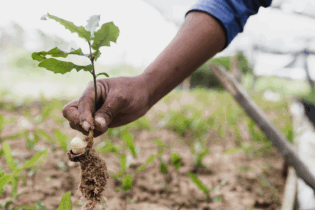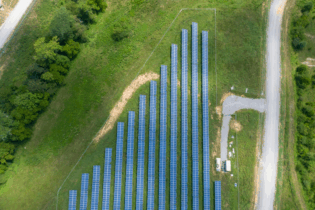Climate change – a big issue for South Africa and the continent – is a heavy burden for insurers. How to manage and respond to the risks posed by extreme and changing weather patterns – as demonstrated by the recent floods in KwaZulu-Natal – together with supporting affected customers and communities, is a complex and multi-faceted challenge.
This was one of the key problems highlighted by Garth Napier, MD at Old Mutual Insure, who spoke at the recent global event, The Future of Sustainability Summit 2022, which brought together various stakeholders to discuss the material environmental, social and governance challenges we face and how best to address them. “I don’t think anyone can argue with the fact that to manage climate change risk, we need to act now, especially if we want to reduce the rate at which our planet is warming by 2050. But, finding solutions is a layered process,” said Napier. He explained that regulation has been a barrier to addressing climate change quicker, as many companies have been ready to supply renewable energy, but regulation did not allow for this. Another barrier has been funding. “Innovation is key. There are great ideas out there that can help to mitigate the risks posed by climate change, but funding of these ideas is a challenge that needs an industry solve,” said Napier. He used the example of smart geysers, which will greatly reduce the risk of damage, and help prevent losses: They can tell the user when something goes wrong, prevent a burst geyser by switching it off before it happens, and be more energy efficient. “Fintechs can help bring these innovations to the market, but it is expensive. We need innovative funding solutions to fund solar panels into homes as well as renewable energy projects when they come up – without taking on a loan or a second mortgage,” said Napier. He added that Old Mutual Insure has recently launched SMEGo, a free online platform that connects entrepreneurs with funders to help with this problem. “It is a platform that is helping to address the ESG challenges that the country is facing, as well as allows for innovative funding solutions for SMEs.” But, he said, solutions to these challenges cannot be tackled in isolation by the corporate sector.“We need government to invest and support renewables. We are in a situation now where we need this more than ever – especially with Stage 6 loadshedding. There are lots of companies ready for this and I hope government sees it as an opportunity to enable investment,” said Napier, adding that to date Old Mutual has invested over R36 billion into renewable projects across Africa.
He added that government must also prioritise infrastructure development and maintenance as this will go a long way in avoiding the large-scale damage as a result of extreme weather events, like those recently seen in KwaZulu-Natal. “Without it, it will be difficult for insurers to protect assets, and we can’t bring new products to market,” he said. He used the example of flood protection for shacks. “Without government investing in clearly demarcating flood zones and adequate storm water drainage systems, we can’t price such a product for customers. It is important that we work with government to find solutions that are affordable, but in the same breath we cannot wait for government before acting on climate change.” He said that strategic partnerships are critical to helping economies like South Africa to make a Just Transition. “There is a great discrepancy between developed and emerging economies in funding and technology. Not all countries can move at the same speed, or from the same starting point when it comes to carbon emissions. So how do you set different goals per country and even at a community level? Important to the question of funding is also skills, knowledge and perhaps even intellectual property transfer. Levelling the playing field may mean a willingness from owners of innovative but expensive renewable technologies to share their IP more broadly – like an open-source economy. This would bring down the cost of technology in this space significantly.” He added that South Africa has been allocated significant funding to drive a Just Transition, and that, if done right, the country can become an important pilot for how developing economies can achieve a Just Transition. “By 2050 Africa will be home to over 2 billion people, which means that it will be the second largest continent. Currently South Africa makes a small contribution to global GDP despite having the bulk of the world’s natural resources. It is important that we ensure our voices are heard and that a global solution to a problem like climate change considers the African context.” He added that this is why deals like the African Continental Free Trade Area (AfCFTA)- which is touted to increase jobs across the continent to 300 million – will become critical for sustainability. “Given the global supply chain disruption, investing in regional supply chains and creating solutions that tackle our problems on the continent, will help safeguard our climate while building equitable societies.”







